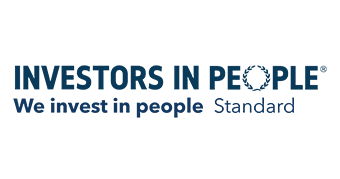
Frequently Asked Questions
Commonly-asked questions about Ayom and our services, answered
The simple answer is the statute of limitations for a debt is 6 years. However, this does not mean a debt is 'written off' after 6 years. The 6-year period starts when a debt reaches what is known as a 'cause of action'. This is often the point in which a debt becomes officially recognised between the parties as a 'debt'. This could be down to not making a payment before a contractually obligated date, or not paying at a date in which a debtor has promised to pay.
After 6 years, a debt becomes 'statute barred'. This doesn't mean it can't be recovered but it does mean certain methods of recovery are no longer possible such as court action and seeking a CCJ. A debt recovery agency can still chase a debt that's over 6 years old.
No. To collect it debt, it is not a necessity to go to court.
In fact, it can take much longer and cost much more to do so. To collect a debt using the courts, first a CCJ must be obtained which, even if awarded, is not a guarantee the debtor will pay. A CCJ is simply an acknowledgement from the courts that the debt exists and should be paid.
After that, to attempt to recover the debt using bailiffs, a high court order must be obtained. Eventually, when bailiffs attend the property, they must not only recover the debt value but their fees. If there isn't anything of value which covers that debt or a portion of it, they can leave having attended as promised.
If money has been exchanged between 2 entities, with a promise made to either provide a product or service, or to repay the money, then a debt is present. Debt can be defined as "a state of being under obligation to pay or repay someone or something in return for something received."
If this is the case, you can explore options for the repayment should the debtor not make payment as promised.
OK so, you have a debt to be collected. To assist with the debt recovery process, it helps to have at least some basic information and records. Evidence can be as simple as a text message acknowledging that the money will be repaid. If you have a set of contracts or paperwork which supports your claim, passing this to a debt recovery agency will help overcome any attempts at time wasting or disputes.
For us to stand the best chance of recovering your debt in full. We'd need as much of the following debtor details as you can provide:
- Debt amount
- Date of debt
- Any current disputes
- References for any CCJs awarded
- Name and aliases
- Current or last known address
- Phone number(s)
- Known email addresses
- Websites associated with the debtor
- Social media profiles
- Supporting documentation & evidence
With Ayom Debt Recovery, there is no upfront cost. To put a debtor onto our system you will require to sign up for a free account, from which you can upload all the details above to get our team immediately into action.
Once we begin to recover your debt, our commission is fixed (Usually at 15%). The way we work is that our percentage is taken from whatever we recover towards the value of your debt. So, in the unlikely event we don't collect anything, you don't pay anything. If our commission is 15% and we collect £1000, our fees are £150. It's as simple as that. Our way of working encourages us to collect your debt in full, otherwise, we won't unlock our full commission. There may be minimum amounts applied such as a minimum commission amount on a small debt.
If the business has ceased trading, it is still possible to chase a debt if the business owner has written you a personal guarantee. This shifts the burden of paying onto the individual rather than the business itself. If however, the debt is solely linked to the business which has ceased trading, unfortunately it is unable to be recovered. This only applies to Limited Liability businesses. For other business types, get in touch for advice.
We have access to tracing tools which allow us to find new addresses and contact information for absconded debtors. These tools constantly update meaning as soon as your debtor shows up on our system, we can start chasing them for payment.
There are instances in which you can add interest. If you have a contract in place which specifies an agreed interest as part of the contract, this is enforceable. If the debt is a business debt but there isn't any interest specified in the contract, you may still be able to add interest via the Late Payments of Commercial Debts Act. This permits you to charge 8% interest plus the Bank of England base rate on overdue debts owed by your business customers (B2B). You can begin charging interest as soon as payment becomes overdue, and if no payment date was documented or agreed, payment is classed as late 30 days from the customer receiving your invoice or delivery of the service/product.
If the debt is a personal agreement, there is no statutory act which allows interest to be added. If however as part of the agreement there is a contract which states interest can be applied and is agreed to, this can be claimed for.
Absolutely. We experience a host of excuses and delay tactics that often take the form of a 'dispute'. Our service is about mediation and putting your case across to the debtor including overcoming and negotiating through disputes. If they are trying to avoid payment, we will maintain pressure. If there are any legitimate disputes, we can advise on how this affects the debt. A dispute doesn't mean the debt is not collectable, it may be that it only covers part of the debt. In which case we can still pursue what is rightly owed.
Need help with something else?
Partners & affiliations.





